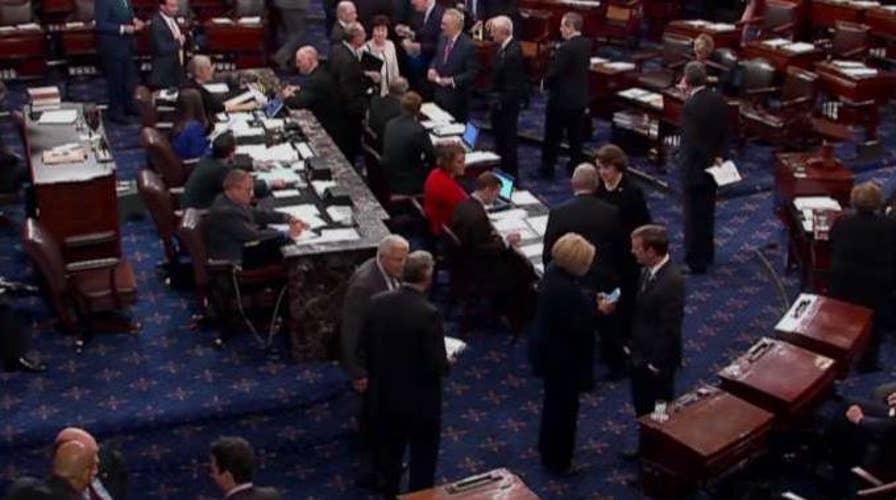Senate votes to override President Obama's veto of 9/11 bill
'Outnumbered' reacts to the 'historic moment'
Congress' vote Wednesday to override President Obama’s veto of a bill letting 9/11 victims’ families sue Saudi Arabia marks the first override of Obama's presidency – but while rare, it is far from the first time Congress has exercised its override power.
Since World War II, Congress has overridden dozens of presidential vetoes. This is in part because certain past presidents vetoed far more bills than Obama has.
While Obama has only vetoed 12 bills, President Franklin D. Roosevelt vetoed 635 bills – the most bills vetoed by any president in history. Congress was able to override nine of them, on issues including interest rates on bank loans.
Congress had greater success overriding vetoes in times when the president had a weaker grip on power. President Gerald Ford, who took office after the Watergate scandal that forced predecessor Richard Nixon to resign, vetoed 66 bills and had 12 of those vetoes overridden.
Wednesday's veto means Presidents Lyndon B. Johnson and John F. Kennedy are the only two post-war presidents to never have had a piece of legislation overridden by Congress, despite vetoing 51 bills between them.
More recently, President Bill Clinton vetoed 37 pieces of legislation, and only two of those were overridden, including a bill that restricted shareholders' ability to sue for securities fraud. His successor, George W. Bush, vetoed 12 bills (the same number as Obama) and had four of those overridden by Congress -- including a Medicare bill stopping payments to doctors from being slashed.
The first override of a veto was in 1845 when Congress overrode President John Tyler’s veto of a bill that prohibited the president from authorizing the building of Coast Guard ships without approved appropriations from Congress.





